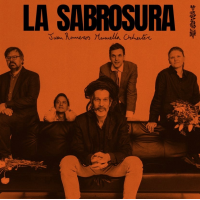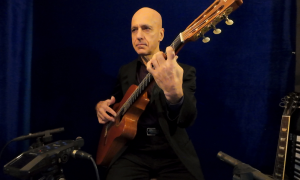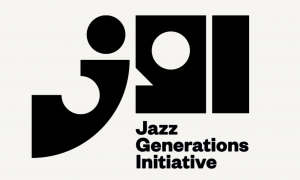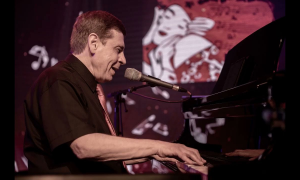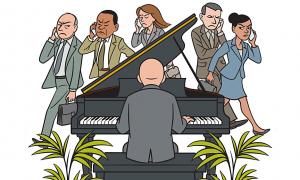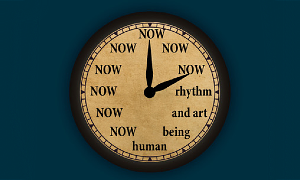Part two is after the jump.
Because a computer algorithm determines your uPlaya score, do you think it's even more objective than getting the opinion of another music professional, maybe someone you don't even know, don't have a relationship with?
It will certainly never replace the human ear. I don't think it will ever replace an A&R because A&Rs have that experience in the music industry of knowing a hit. It's gotta sound like a hit. Just because you got a good score doesn't mean your song's gonna be a hit.
A lot of people will turn around and say, “Well isn't your music all gonna sound the same? Aren't people gonna try and get scores? Aren't people gonna try and build songs for uPlaya so they can get scores?" No, not necessarily. Because if you go by our site, or to uPlaya's site, listen to all the different kinds of music that have gotten good scores. None of it sounds the same.
A lot of people say, “If you build a song that's less than four minutes and it sounds this way, and it has this pattern, you know, the AABAA or something, then you'll get good scores," and that's not true because I've got songs that are six minutes long that have gotten awards. It really doesn't set any pop formula.
I don't build songs to get good scores on uPlaya. I build songs for me. I have plenty of songs that didn't get great songs that I will use on albums. The album that we're going to release in the winter has songs that didn't get good scores at all, but because I like the song want to put in there, I'm going to put it in there, you know?
Do you think uPlaya could one day be used to help artists move in different directions? I could imagine some kind of songwriting tool that would help composers and artists write songs in a particular style. If they have the technology to analyze the sonic properties of a piece of music, that could become a toolkit to help write songs for specific contexts and get that done more efficiently.
You know, I guess it could. I do think it will make more artists experiment with new things. With uPlaya, I don't think there's a set way to make music that will give you good scores all the time. You always figure that there's somebody who will try to work the system, but if you get a good score on one song you basically have to have the same song again to repeat that score. You may change the words, but you need to have the same melody, beat, pitch, and overall structure.
uPlaya might help introduce new genres of music. You know, for fun we try different [genres]; our music ranges in hip-hop, everywhere from a more jazz style to electronica. The song we entered in last night has more of an electronica beat and we ended up getting a good score with that. So I think it makes you experiment to use more of your creative juices to see. You never know. Maybe a new genre gets invented because of uPlaya.
Yeah, I see what you mean.
Everybody says it hinders it. I think it enhances it.
You're convincing me. I'm a musician myself and I was a little skeptical, but everything you're saying makes it sound appealing.
It is. It's a cool tool. Just don't go in with the idea that you're going to be a billionaire when you get a platinum score because there's still other factors involved--you pushing your music and having it sound like a hit to the point where A&R's and other industry people like your music. It's not that cut and dry and I think a lot of artists are thinking that it's cut and dry--you stick it in there, and you sit back, and uPlaya's gonna do the work for you. It doesn't work like that.
I've personally been at it for almost a year with uPlaya, with the widgets and stuff and had been able to build up enough of a resume before uPlaya to the point where we could get noticed a little bit more by some people. I'm still sending out stuff to labels every day. uPlaya is a great tool because some record labels are secretly using it. If you read the Harvard Science report that came out in 2009, they were already using it for Anastasia, J-lo, 50 Cent. They were already using it for those artists back then. So you know the labels are using it. It's kind of nice to be able to turn around on your resume and say, “Hey, I've got a few songs here that have got great uPlaya scores." And they know what you're talking about. So it gives you a leg up a little bit, maybe to the point where A&Rs and labels and other places go, “Huh, he's got good scores. He must have something to offer us as an artist. Let's find out exactly what he's done to get to that point."
Sort of an objective seal of approval.
It is, it is. Like I said, there's no emotion tied except for you waiting to see if you got a good score or not. But it dissects your song and splits it up and gives an honest opinion. It compares your song to 50 years worth of music. So it's kind of neat to see how you stack up, mathematically, compared with songs from the past.
That actually is a good segue. I wanted to change directions a little bit and ask you a question more specific to the music that you're doing with the Block Scholars. As a group you guys definitely have your own style, and you're admittedly trying to bring real hip-hop back to the forefront. This calls to mind a little bit of a nostalgic aesthetic. Because uPlaya draws from the reservoir of past hit songs, does having that nostalgic element make the site work a little better for your guys?
I don't think so. Like I said, the music that we've doing for our album in the winter has electronica on it. It's got electronica styles, which isn't anything from 50 years ago. And we're getting good scores from that. According to uPlaya they turn around and they go in and look at the new songs that are being hits and they change their database all the time. It's not just songs from the last 50 years...you're also being compared to the new music that is out there too, the Billboard hits, all that.
I don't think it gives you any type of advantage if you do older style songs. Because if you go through and listen to the featured artists there's some that are doing electronica, there's some doing some doing experimental stuff that are getting great scores. So, there's no formula. Everyone thinks there's a formula on getting good scores, but there really isn't. There really isn't a formula and I don't go in there thinking that when I place a song in there. Like I said, we've got songs on this album that didn't get any Auddy awards at all, but we still want to put it up there because we like the song. That's what the bottom line is.
And you should.






